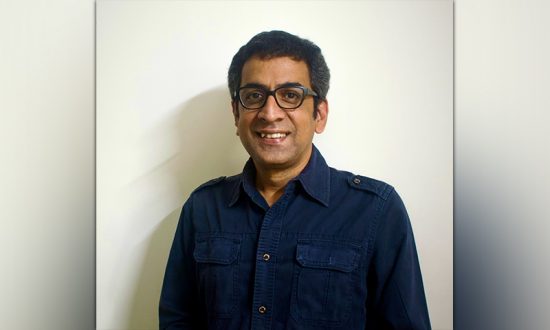Dr Ashutosh Potdar has been teaching English and Indian literature, drama and theatre studies, as well as creative writing at graduate and postgraduate levels for more than twenty years. He has published his research on drama and literature in English and Marathi in various journals and presented papers at national and international conferences. Dr Potdar is also a prominent playwright and poet writing in Marathi. He is currently Associate Professor of Literature and Drama at FLAME University, Pune.
Performing arts is generally considered to be practically produced creative work performed in front of an audience. It is also a form of gaining knowledge by exposing learners into disciplines like humanities and sciences through interdisciplinary methods. Education in performing arts is researching and practicing a wide range of specializations including acting, dance, voice, physical theatre, musical theatre, sound design and digital video.
Evolved through the rigorous personal and group dynamic processes, the performing arts education demands significant space, time and financial involvement of an individual and a community. However, unfortunately, performing arts is considered ‘non-profit’ even though it requires multi-pronged, deep-rooted involvement similar to that of humanities, sciences or business development.
Across the world, education in the performance arts is imparted at undergraduate, post-graduate as well as advance research level through MPhil and PhD research. At the undergraduate level, most performing arts degrees are three or four years long but this will largely depend on where you study. They are usually awarded as Bachelor of Arts (BA) degrees, or less commonly, Bachelor of Performing Arts (BPA). Some institutes run one year certificate programmes too.
Performing arts degrees are combination of practice-based work to be started from the first day of academic year and theoretical work to build skills of analyzing performing arts in the context of humanities and physical and natural sciences. Thus, through the methods of practical workshops, lectures, field-work, library and archival research, education in performing arts prepare students in the field of arts as practice and research. Conventionally, a degree in performing arts would train students in fundamental practices such as theatre, dance and music. In this, they are enabled to train in one or more areas of performing arts such as acting, dance or training as an instrumentalist or a vocalist. Additionally, learners are trained in technical areas such as stage and sound designing, theatre management or arts management. Several universities and colleges offer internship opportunities of working with performing arts group or companies to apply the skills learnt within the academic set-up.
With the emergence of liberal education programme, performing arts education has been crossing its disciplinary boundaries by training students in the other fields of knowledge. Such education evolves its class and field work with history, sociology or business studies. For instance, a learner aspiring to be an actor is also exposed to arts management or social sciences along with her training in voice-projection, gesture and movement.
Such diverse education in performing arts has been opening doors to newer windows of bright career. Getting a degree in performing arts doesn’t limit one’s career to only one way or the other. On the one hand, traditional university education has been changing and, on the other hand, liberal arts education is opening new avenues by making education more exciting, collaborative and sustainable. Interestingly, this is exposing university-students and educational institutes to work nationally and internationally. Changing policies of the government and corporate are enabling students and artists to try out different possibilities of being more resourceful and generate funding. After completing education in performing arts, one can foray into organisational or management work, business, teaching, media, advertisement, theatre work, writing, composing music, choreographing dance or undertaking fundamental research in performance studies.
Therefore, it is important that learners, parents, teachers, educational institutions and different other stakeholders recognize the potential of performance practices and research. In order to achieve best results in education in performing or any other arts-education, it is necessary to provide students with the opportunity to build a collaborative spirit to discover art and life. The facilitators-pedagogues-teachers have to break away from their orthodox methods of being rigid in their approaches. Instead, updating themselves with changing performance practices and studies, they have to proactively engage with newer generation by enhancing learners’ skills in communication, negotiation skills, teamwork, dialogues and network building. We all have to be aware of the fact that different aspects of performing arts education are organically connected to several other disciplines in humanities and social sciences as well as natural and physical sciences. Importantly, the learners have to keep their eyes wide open to newer opportunities, collaborations and challenges.
Making career in performing arts education has always been challenging. But, this is true of any other education in humanities or fundamental sciences as we are living in highly competitive world driven by profit-loss equation. One way of looking it is to acknowledge that performing arts education gives learners an opportunity to follow their own passion and heart. And, we should let our students follow it through disciplined, rigorous academic training and risk-taking appetite. Then, the career-would not be that far for such student. Very importantly, career-building is not only about accumulating material wealth but it also involves ways of evolving as the responsible human being sensitive to the world around in all its complexities. Certainly, the learners will get such opportunity through performing arts education.
Views expressed in this article are personal.




